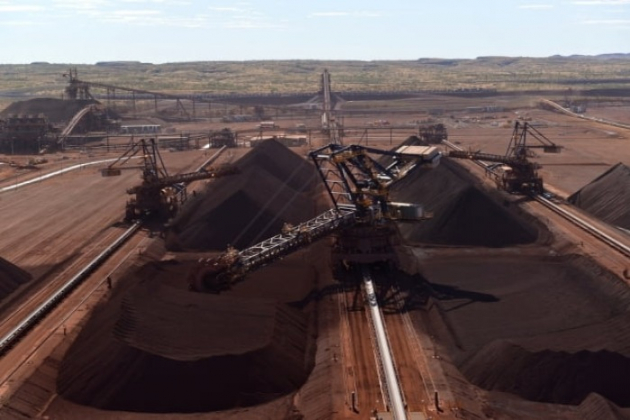Carbon neutrality
POSCO, Hancock partner for low-carbon steel materials production
The world's sixth-largest steelmaker is expected to build a hydrogen-based steelmaking process for the long term
By Mar 30, 2022 (Gmt+09:00)
2
Min read
Most Read
LG Chem to sell water filter business to Glenwood PE for $692 million


Kyobo Life poised to buy Japan’s SBI Group-owned savings bank


KT&G eyes overseas M&A after rejecting activist fund's offer


StockX in merger talks with Naver’s online reseller Kream


Mirae Asset to be named Korea Post’s core real estate fund operator



South Korea’s top steelmaker POSCO Co. and Hancock Prospecting Pty Ltd, a leading Australian mining firm, are slated to collaborate in low-carbon steel material manufacturing. The partnership is to build a foundation for a hydrogen-based steelmaking process and carbon neutrality.
On March 29, the world's sixth-largest steelmaker and Hancock signed a heads of agreement (HOA) at Hancock headquarters in Perth, Australia to review the business feasibility of hot briquetted iron (HBI) production. This follows as the two companies in July 2021 signed a memorandum of understanding for a preliminary feasibility study of the business.
The two firms have agreed to establish an HBI plant, develop iron ore mines and set up pilot facilities for hydrogen production. They will decide on the investment in the project by this year after reviewing a detailed feasibility study.
HBI is pure iron that is extracted from iron ore using natural gas, instead of scrap, to produce high-quality steel sheets. That compares with other electric arc furnaces that melt scrap to release oxygen from iron ore. POSCO’s plans are understood as focusing on building HBI production infrastructure in the short term and establishing a hydrogen-based steelmaking process as a mid-to-long-term strategy.
Last December, POSCO announced it will build two mini-mills using HBI by 2027 in Korea, which are expected to have an annual capacity of 800,000-1 million tons each. Setting up a supply chain for HBI to be used in the planned mini-mills, it plans to invest in an HBI production facility having an annual capacity of 2 million tons in partnership with Hancock. Australia’s Roy Hill mine, the world’s largest single mine with indicated and inferred reserves of 2.3 billion tons, will be the facility's site. POSCO is a shareholder of the mine, owning a 12.5% stake.
POSCO is also partnering with Hancock for multiple projects in Australia. The two firms and other partners have embarked on a feasibility study on the Hardey iron ore project in the West Pilbara owned by the Australian Premium Iron (API) joint venture, according to industry sources on March 10.
The Hardey project has been shelved since 2010 due to poor market conditions and will be restarted as the steelmaking raw material prices soar. The Korean steelmaker holds a 24.5% stake in API and will be able to receive up to 5 million tons of iron ore a year from the JV-developed Australian mines. The volume makes up about 8% of POSCO’s annual iron ore needs for steelmaking.
Last October, the steelmaker’s trading subsidiary POSCO International Co. and Hancock jointly acquired a 100% stake in Australian coal seam gas producer Senex Energy Ltd. for A$815 million ($613.5 million). The POSCO affiliate holds a 50.1% stake in Senex, and Hancock owns the remaining 49.9%.
Write to Jung-hwan Hwang at jung@hankyung.com
Jihyun Kim edited this article.
More to Read
-
 SteelPOSCO, Hancock to restart multi-billion-dollar Hardey iron ore project
SteelPOSCO, Hancock to restart multi-billion-dollar Hardey iron ore projectMar 10, 2022 (Gmt+09:00)
3 Min read -
 Corporate restructuringPOSCO launches holding firm to develop non-steel biz
Corporate restructuringPOSCO launches holding firm to develop non-steel bizMar 02, 2022 (Gmt+09:00)
2 Min read -

-

Comment 0
LOG IN


